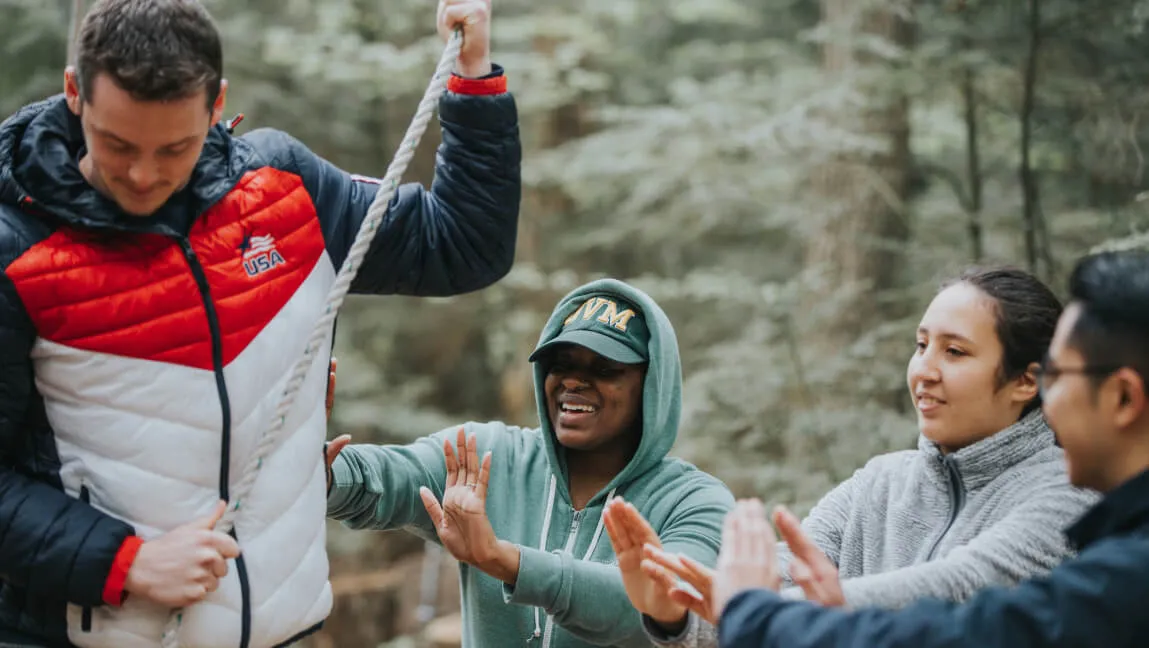The University of Vermont Career Center launched a new partnership this year to expand inclusiveness in career preparedness through a collaboration with nuwave Equity Corporation, a local, Black-owned, racial equity firm that is “committed to fundamentally transforming the spaces and places it touches in order to create more equitable outcomes.”
This partnership is focused on developing relationships with communities that have been systemically excluded in the past and provide resources to these communities to help increase diverse representation at UVM and in Vermont workplaces.
“One of our department’s key priorities is to elevate resources for and in collaboration with the BIPOC (Black, Indigenous, People of Color) community—students, staff, alumni and employers,” said Amanda Van Vranken, Assistant Director for External Partnerships in the UVM Career Center. “This collaboration with Emiliano is integral to our department values and aligned with the values expressed in UVM’s Our Common Ground. Our goal is to build bridges between UVM and underrepresented businesses to better serve marginalized students and alums in their career success.”
Emiliano Void is the founder and CEO of nuwave, based in Burlington's Old North End. He’s been working with the Career Center and other professionals at UVM to build an environment that creates more opportunity for Black and systematically excluded people. Void was the keynote speaker at a UVM career fair last fall and presented at the Vermont Chamber of Commerce 2022 Economic Conference about the competitive advantages of promoting equity in Vermont businesses.
“Amanda and I have been looking for ways to create more connectivity internally with the university but also externally,” said Void. “One of our first collaborations was on the career fair side of the fence—we reached out to Black and Brown business owners in the community to create a dedicated space for them at career fairs at UVM. Events like this also help underrepresented students see themselves reflected in their business community as they are looking at taking the next step in their owns careers,” he says.
Van Vranken and Void continue to find ways to connect with BIPOC business owners and community members. They collaborated on a joint letter to the State of Vermont’s directory of Minority/Women Owned Business Enterprises (M/WBE) as well as the Vermont Professionals of Color Network which formed in 2019 to meet the needs of businesses owners who identify as Black, Indigenous and People of Color. Now, nearly 300 business have registered on the organization’s official directory. “We want these organizations to have a welcoming space at UVM to promote their workplace opportunities and connect with talented students here,” Van Vranken said.
In much the same way that leaders in the green business community say they create stronger enterprises when environmental sustainability is factored into a company’s bottom line, Void advocates that building connections with BIPOC-owned businesses strengthens the overall economic vibrance of any community or region.
Creating bridges for systemically excluded people is music to the ears of UVM student Felisa Hollenbeak ‘23, a Classical Civilizations Major from Hawaii who is a Peer leader in the Career Center supporting the Education, Policy & Social Impact Career Interest Group.
“I definitely think there needs to be a stronger connection between BIPOC students and people and organizations that provide resources for them,” she said. “I know they are out there, but there are large communication and access gaps.”
Felisa benefitted from the Career Center’s Peer Leadership Program that provided a space for discussions about career anxieties and career readiness that are of particular concern to her fellow BIPOC students. “It helped me to be heard, to feel understood, and to discover that preparing to enter the workforce is about forming connections.”
Void understands the demographic disparities in the state—per capita, Vermont is the second whitest and second oldest state in the nation. But Void sees this as an opportunity.
"People often refer to the size of this state as a deterrent," he said. "But because we are scaled at this size, things can happen very quickly. Just a few conversations can enact change that will have huge ripple effects.”
